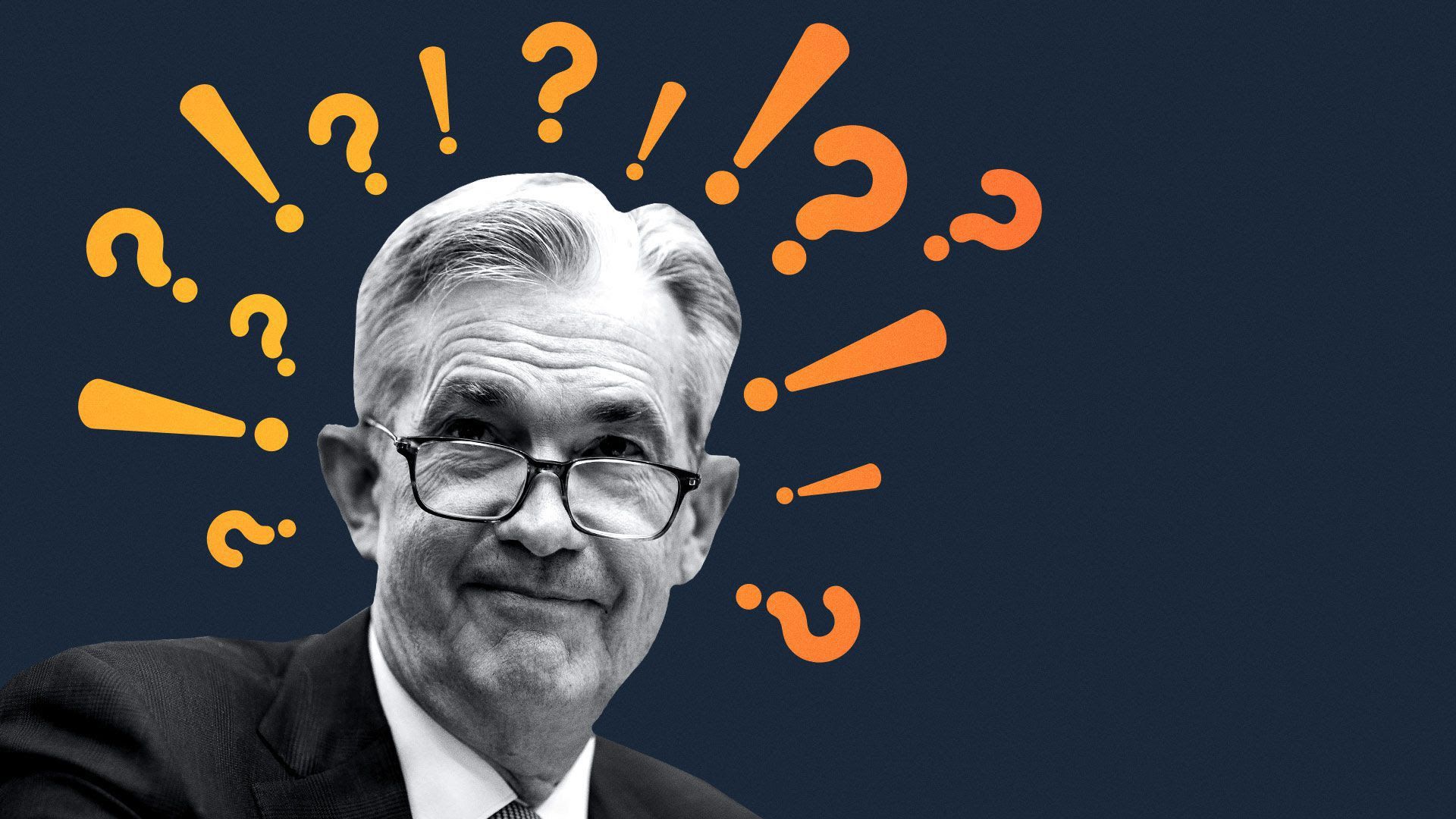An uncertain Fed for an uncertain time
Add Axios as your preferred source to
see more of our stories on Google.

Photo illustration: Eniola Odetunde/Axios. Photo: Zach Gibson/Stringer/Getty Images
The Fed policy meeting Wednesday that was designed to further clarify its new stance on "average inflation targeting" — a topic addressed by multiple policymakers on its rate-setting committee in the month since it was announced — left the market with more questions than answers.
What's happening: The Fed announced that not only was it keeping U.S. interest rates at essentially zero for now but it plans to keep them there until at least 2023, extending its forecast an additional year.
- But there were a series of contrasting messages in both the Fed's statement and in chair Jerome Powell's press conference.
- Notably, the central bank raised its expectations for 2020 U.S. growth (to -3.7% from -6.5%), inflation (to 1.2% from 0.8%) and employment (to 7.6% unemployment from 9.3%) but also announced it was likely to crank up its stimulative bond-buying programs and keep interest rates lower for longer.
The state of play: Critics are growing louder about the lack of consistency and detail in the Fed's policies and criticism is even growing within the Fed, evidenced by two dissenting votes to its newly announced inflation goals.
What they're saying: "The Fed’s caution and patience have led to a preference for vague statements rather than firm commitments, and that dedication to flexibility has already had a consequence," Eric Winograd, senior economist for fixed income at AllianceBernstein, said in a note to clients.
- Winograd argued that Powell's refusal to define what was meant by the words "for some time" in the statement led to the decline in stocks that pushed the Nasdaq to end the day down 1.25%.
Zoom in: "The market was looking for explicit guidance about the parameters of the new inflation framework, but the Fed chair chose not to share details," said Seema Shah, chief strategist at Principal Global Investors.
- "He also failed to discuss how they will utilize the toolkit, leaving investors in the dark about how it will push inflation to 2%, let alone overshoot it."
Between the lines: "And if inflation met the 2% mandate consistently, would that even be a good thing for U.S. households?" BlackRock chief investment officer of global fixed income Rick Rieder asks rhetorically in a note.
- "For most lower- and middle-income households, inflation for inflation’s sake is a drag on net disposable income and, more to the point, on quality of life."
